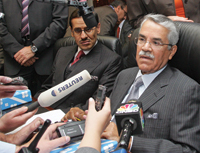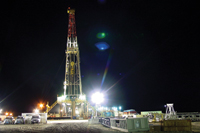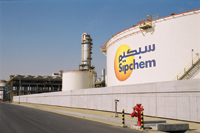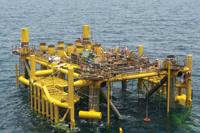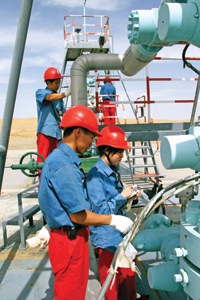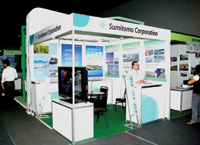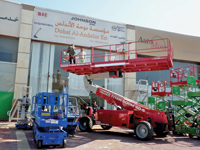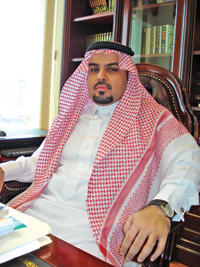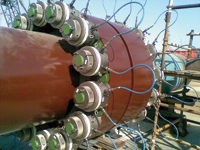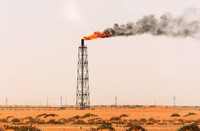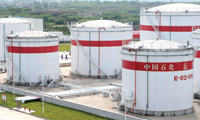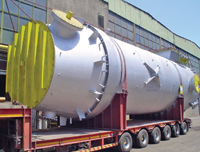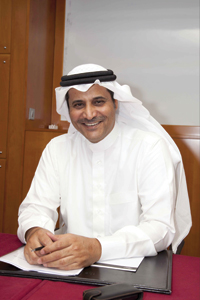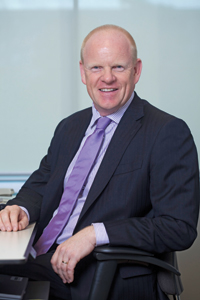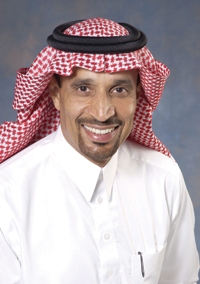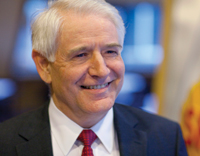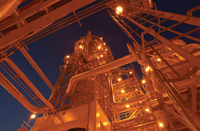
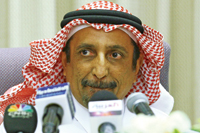 Al Mady ... optimistic
Al Mady ... optimistic
SAUDI Basic Industries Corp (Sabic) says it had an “excellent” 2011 and forecasts further strength for the petrochemical sector next year, its chief executive says.
“The whole year has been excellent. We’re selling everything we produce. The year will finish as a very high year for Sabic,” says Mohammed Al Mady, who heads the Middle East’s biggest company by market value.
Al Mady told an industry gathering that the sector was experiencing some weakness in demand in the fourth quarter, especially from emerging economies.
He says that he expected this to be a temporary phenomenon. “It’s softening for a small period of time – it will come back,” he says. “2012 will be another good year for everybody...not much capacity is coming on stream.”
The chemical industry’s financial health often serves as a barometer for the global economy since its products are used to produce a wide range of consumer goods, from toys and toothbrushes to smartphones and solar panels. The sector’s dependence on highly cyclical machinery makers, carmakers and builders makes it especially vulnerable to a downturn.
Many of its customers have been drawing down their own supplies in the fourth quarter before they refresh inventories.
Sabic’s bullish comments are in contrast to comments from its large rivals. Demand for basic materials is softening in the last three months of 2011, particularly in emerging economies, Al Mady says.
Al Mady says however that Sabic was still on track to grow in 2012, after posting record quarterly results this year.
“Some softening of demand occurred in the fourth quarter, especially in emerging countries,” he says.
The petrochemicals giant says in November that it expected to see moderate growth in 2012 on the heels of record quarterly results so far this year.
Meanwhile, Sabic has reported a 10 per cent drop in quarterly profits, missing forecasts, as it felt the impact of lower prices globally. Sabic made a net profit of SR5.24 billion ($1.40 billion) for the three months to end December, compared with SR5.81 billion in the same period a year earlier.
Analysts expected the firm to post, on average, a net profit of SR7.1 billion for the second quarter. The bellwether Middle East conglomerate, which supplies chemicals, industrial polymers, fertilisers and metals globally, had posted record profits in the second and third quarters of last year.
“The economic situation in Q4 impacted but we started to see an improvement in prices and we hope it improves further,” Al Mady says.
“My prediction is that 2012 will be a mirror image of 2011 and that 2013 will be even better.”
Al Mady says fourth quarter sales rose to SR47 billion, from SR40.8 billion in the prior-year quarter. On the year, Sabic had sales of SR190 billion, up from SR151 billion in 2010. Over the past year, several Sabic subsidiaries have brought on stream new production lines, increasing the company’s sales volumes at a time of high chemical prices.
Strong oil prices last year also enhanced the comparative advantage enjoyed by Saudi chemical producers, which typically use gas feedstock, over their global rivals which buy naphtha at prices linked to crude.
However, the sector’s dependence on highly cyclical machinery makers, carmakers and builders makes Sabic, which is 70 per cent state owned, particularly vulnerable to an economic downturn.



















































































